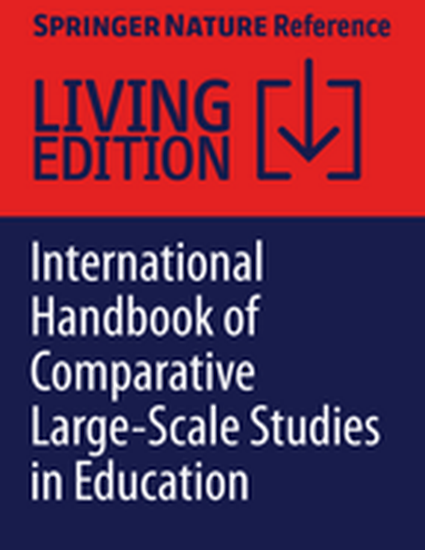
Contribution to Book
Digital Competences: Computer and Information Literacy and Computational Thinking
International Handbook of Comparative Large-Scale Studies in Education
(2021)
Abstract
This chapter describes how the cross-curricular learning area of digital competence has been conceptualized and assessed as part of national and international large-scale assessments. Digital competence can be conceived as an overarching concept that includes ICT literacy (or computer and information literacy) and computational thinking. This chapter will outline the conceptual background as well as the history of developing studies assessing students’ ICT-related knowledge, skills, and understanding, both in selected national assessments and in cross-national studies. It will discuss the challenges faced by assessments in this area with regard to new developments in digital technologies that impact on the aim of obtaining comparable measures of digital competence such as computer and information literacy and computational thinking across national contexts and over time.
Taking the example of the IEA International Computer and Information Literacy Study (ICILS) as the only study dedicated to comprehensively assessing this learning area from a cross-national perspective, this chapter outlines the development of its conceptual framework, the assessment strategy, and the broad range of contextual information gathered as part of this survey as well as the main outcomes from the second assessment cycle conducted in 2018. This chapter also includes a description of the assessment of computational thinking as part of ICILS 2018 and describes the relationship of this new construct with young people’s computer and information literacy. While not indicating a unidimensional construct, results from ICILS 2018 show that both computer information literacy and computational thinking are positively correlated and have highly similar associations with contextual factors. However, there are some interesting differences, in particular, in their respective relationships with students’ gender.
Taking the example of the IEA International Computer and Information Literacy Study (ICILS) as the only study dedicated to comprehensively assessing this learning area from a cross-national perspective, this chapter outlines the development of its conceptual framework, the assessment strategy, and the broad range of contextual information gathered as part of this survey as well as the main outcomes from the second assessment cycle conducted in 2018. This chapter also includes a description of the assessment of computational thinking as part of ICILS 2018 and describes the relationship of this new construct with young people’s computer and information literacy. While not indicating a unidimensional construct, results from ICILS 2018 show that both computer information literacy and computational thinking are positively correlated and have highly similar associations with contextual factors. However, there are some interesting differences, in particular, in their respective relationships with students’ gender.
Keywords
- Digital literacy,
- Large scale assessment,
- Computational thinking,
- Information literacy,
- Computer literacy,
- Year 8,
- Student surveys,
- International studies
Disciplines
Publication Date
November, 2021
Editor
Trude Nilsen, Agnes Stancel-Piątak & Jan-Eric Gustafsson
Publisher
Springer
ISBN
978-3-030-38298-8
DOI
https://doi.org/10.1007/978-3-030-38298-8_43-1
Citation Information
Schulz, W., Fraillon, J., Ainley, J., Duckworth, D. (2021). Digital Competences: Computer and Information Literacy and Computational Thinking. In: T. Nilsen, A. Stancel-Piątak, & J. E. Gustafsson (Eds.) International Handbook of Comparative Large-Scale Studies in Education. Springer. https://doi.org/10.1007/978-3-030-38298-8_43-1
